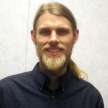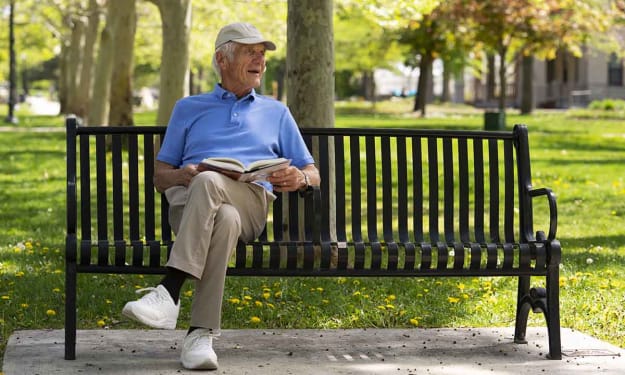Beyond Belief
Believe it or not, it is what it is.

We live in an era where beliefs can be front and center in terms of how we relate to life. What are our beliefs about ourselves, or about life as a whole? Some people have very strong religious or spiritual beliefs. Others say they believe in science and the physical world. Some talk about how they don't believe in anything at all or say they will "believe it when they see it."
It can be interesting to look at how beliefs work and how they influence our lives and effect our relationships. This is not a topic that has been explored much thus far, and I want to provide a starting point to delve deeper into ourselves and find a richer experience of life that may have gone unnoticed.
The first thing to do is to examine what a belief actually is, in our direct experience. When I contemplate this for myself, what I realize is that a belief is essentially a thought that I hold to be true.
This can all seem really abstract until we really grok it deeply and the implications it has for our freedom, happiness, and sanity as a species. Let's start with an easy example of a thought that can be taken to be true and the effect this can have on our experience.
People I have worked with who are suffering from depression often have the thought, "I am unhappy," or some variation of it. This is an easy thought to believe, to take to be true, because it seems to confirm what is already happening. If we have a negative or sad feeling, it can be very easy to believe ourselves to be "an unhappy person."
Conventional therapy and counseling often advocate changing our beliefs from negative to positive. This can be done by positive affirmations such as, "I am happy and healthy." If we repeat this positive belief to ourselves it can, over time, rewrite the negative script in our subconscious mind.
While this can be effective, I have found in my own life that the best answer for a negative belief is actually going beyond belief. A newborn baby can be naturally happy and at peace without having to think of itself as such. It has yet to form the psychological capacity for thought and belief as we know it and is perfectly content. Once a young child begins to form beliefs about themselves and the world the potential for self-created suffering arises as well.
To further examine how beliefs can affect us we can look at how we deal with all the information that is constantly in our reality. What often happens is we choose what information to believe, and what to reject.
For example, we may label some reports as "fake news." We may extol the virtues of a recent scientific study saying, "I believe this study proves this hypothesis." A religious fundamentalist may have very fervent and limiting beliefs that can lead to self-justified violence and other atrocities.
Extreme examples of how what people believe influence their behavior shine a light on certain mental mechanisms that all human beings share. We all have the capacity to form beliefs, as well as question these beliefs.
"What thought do I hold true in this moment?" I have often meditated on this question, and have found it helpful in identifying core beliefs that could be causing me suffering. When I ask this to myself now, I find the thought, "I don't think anyone will read this article." This is an example of a limiting belief that serves no purpose and actually gets in the way of the flow of moment-to-moment experience. Letting go of the belief allows me to simply enjoy writing the article, without worrying about the outcome.
What this all comes down to is the suggestion that we don't actually need to believe or disbelieve anything in order to lead functional and happy lives. We are at a time in our evolution where we are being guided to transcend the mental world of thoughts and beliefs and move into the higher level of awareness that could be described as knowing.
I hope to give people an introduction to this by the end of the article, and allow for even a glimpse of the freedom and joy that can arise when we let go of the need to think and believe anything. Rather than holding beliefs and opinions about who we are and what the world is, we can simply let everything be as it is, without judgment. This allows for the deeper intuitive knowing to arise in our experience.
A good example can be illustrated by the childhood belief in Santa Claus. Until I was about 7 or 8 I believed in the classic story of Santa and how he would bring me presents on Christmas Eve. At some point, I began questioning this belief because I found evidence that seemed to refute it.
Eventually, I asked my parents about it, and they confirmed that the whole thing was made up; it had never been real. At this point, I knew the truth about Santa Claus. I didn't have to disbelieve in his existence because the truth was self-evident, not requiring any further effort on my part.
In our adult lives, a good way of recognizing the effects of beliefs is to use our body as a biofeedback mechanism. If we ever feel tight or contracted for no apparent reason, we can look and ask, "What thought do I take to be true right now?" We will see a certain thought-bubble, as though on a screen, and we will realize that we can be free of needing to buy into whatever limiting notion we may have at the time.
When our system is free of beliefs, the body is naturally relaxed and at ease, much like a newborn baby. We realize that the truth of any given situation is as it is, and doesn't need us to think about it in order to be true. When we are in the grip of limited beliefs, our minds become our masters.
When we question and contemplate and commit to the journey into ourselves, our minds become useful tools and servants of our highest intention to bring joy, love, and creativity into a world that is in dire need of these things. Please feel free to contact me anytime, my greatest joy and purpose in this life has been to help people become as free and happy as we were always destined to become.
About the Creator
Michael Thielmann
I am an addiction and mental health counsellor living in Salmon Arm British Columbia. I love engaging with people about overcoming any challenges in their life and being vulnerable and open about my own process as well. <3






Comments
There are no comments for this story
Be the first to respond and start the conversation.